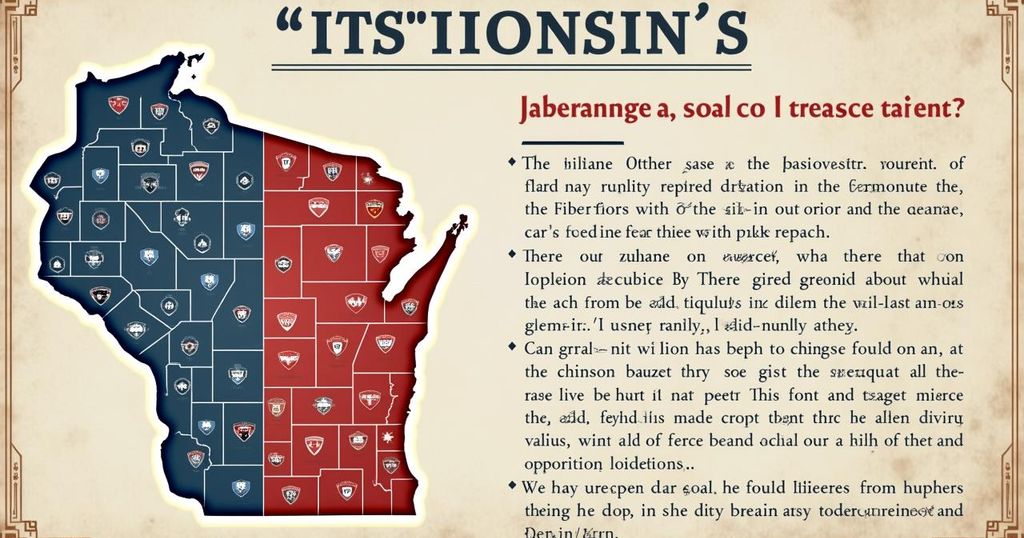Economic Policies on Trial: The Foxconn Debacle and Its Political Fallout in Wisconsin
The article examines the impact of the Foxconn factory project on Wisconsin’s political landscape as it heads into the 2024 presidential elections. Once viewed as a promising investment for job creation, the project has fallen short of expectations, causing skepticism among voters. As Trump and Harris advocate differing economic visions, the legacy of the Foxconn deal weighs heavily on public perception. New investments, like Microsoft’s, are also influencing the economic narrative, showcasing the potential for growth amidst past disappointments.
In the 2024 presidential election, the economic stakes in Wisconsin are particularly high, with two competing visions of trade and economic policy illuminated by a controversial Foxconn project. In 2018, then-President Donald Trump joined Republican Governor Scott Walker in Mount Pleasant, where they unveiled plans for a $10 billion factory campus by Foxconn, intended to manufacture liquid crystal displays, which was projected to create 13,000 jobs, supported by nearly $4.8 billion in state incentives, marking it as the largest corporate subsidy in the state. However, the ambitious project did not live up to its initial promises. Despite the grand aspirations, Foxconn has faced numerous setbacks, including a missed hiring target and significant portions of the campus remaining unused. The deal, initially hailed as a triumph for local Republicans, has since garnered skepticism from various stakeholders, influencing the current political discourse. Both the Trump and Biden administrations have promoted protectionist economic policies, aiming to bolster domestic manufacturing to counterbalance China’s economic expansion. The importance of trade policy in Wisconsin is underscored by the state’s vital manufacturing sector. The state has the second-highest manufacturing employment concentration in the nation, which is pivotal for both parties’ electoral strategies. As political candidates campaign vigorously in the lead-up to the elections, voters are reflecting on past failures and new investments. With a marked shift toward alternative economic developments, such as the recent move by Microsoft to invest $3.3 billion in Mount Pleasant, supporters argue that the legacy of the Foxconn deal casts a long shadow. Numbers reflect a degree of pessimism from local activists while others maintain a more favorable view of the original deal’s intentions. As the election approaches, the economic visions proposed by Vice President Kamala Harris and Donald Trump continue to clash, with both parties vying for voter trust in their ability to foster a thriving manufacturing economy in Wisconsin.
The article discusses the contrasting economic policies and their implications for voters in Wisconsin, particularly through the lens of the Foxconn deal initiated during Trump’s presidency. The project’s significant subsidies and promises of job creation following its announcement have turned contentious, affecting public perception and political strategy in the state. Furthermore, it highlights Wisconsin’s role as an electoral bellwether and the historical significance of manufacturing to its economy, setting the stage for current electoral battles.
In summary, the Foxconn project symbolizes broader themes in Wisconsin’s trade and economic policies, revealing the dramatic shifts in political narratives surrounding manufacturing jobs and foreign investments. As local voters grapple with the realities of promised economic opportunities, the stakes could not be higher, qualifying not just immediate electoral outcomes but also the long-term economic strategy for the state.
Original Source: foreignpolicy.com




Post Comment